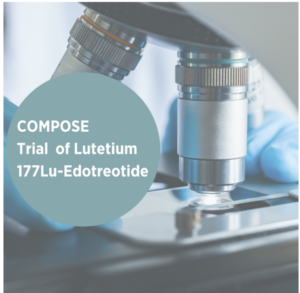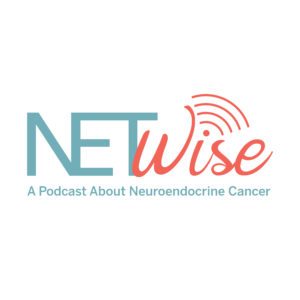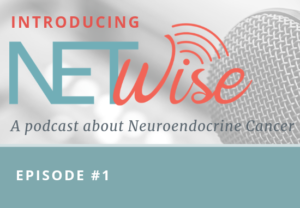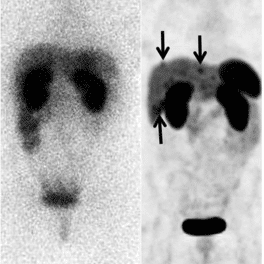
Study Sites Added to COMPOSE Clinical Trial of PRRT with 177Lu-Edotreotide
Additional US study sites are now participating in an ongoing clinical trial of peptide receptor radionuclide therapy (PRRT) with 177Lu-edotreotide as a first or second

The Neuroendocrine Tumor Research Foundation directs your individual donations to breakthrough scientific research. Since 2005, we have funded $37.6 million in research projects. The Neuroendocrine Research Foundation is a 501(c)(3) organization, so all donations are fully tax-deductible to the extent allowed by law. We are grateful to you for your generosity.

The Neuroendocrine Tumor Research Foundation directs your individual donations to breakthrough scientific research. Since 2005, we have funded $37.6 million in research projects. The Neuroendocrine Research Foundation is a 501(c)(3) organization, so all donations are fully tax-deductible to the extent allowed by law. We are grateful to you for your generosity.

Additional US study sites are now participating in an ongoing clinical trial of peptide receptor radionuclide therapy (PRRT) with 177Lu-edotreotide as a first or second

By Josh Mailman Being a NET patient usually means some amount of travel for our care. While the pandemic has negatively impacted almost every aspect

Beginning in August, the NETWise podcast is putting together primary site-specific episodes. NETs can arise almost anywhere in the body, but most start in the gastrointestinal tract, lung, and pancreas.


A NETRF-funded clinical trial looks at a cancer vaccine called SurVaxM in neuroendocrine cancer to help slow or stop the spread of neuroendocrine tumors.


Approximately 20% of all primary lung tumors are neuroendocrine (Hung 2019), including: Typical carcinoid (TC) Atypical carcinoid (AC) Small cell carcinoma (SCC) Large cell carcinoma


Living with cancer increases your risk for complications from influenza (“flu”). If you have cancer now, have had cancer in the past, or live with


Physicians discuss the basics of NET diagnosis, classification, and progression. Particular attention is paid to the frequency of misdiagnosis. Two patients share their stories of delayed NET diagnosis and treatment due to the misidentification of symptoms.



Neuroendocrine tumor podcast explores neuroendocrine tumors (NETS), featuring world-renowned NET specialists and patients living with neuroendocrine cancer.


If you’ve ever been tested for eyeglasses, you know how one lens can create grainy, foggy images and the next crisp, clear letters. That’s the kind of difference you can see between the Gallium-68 PET/CT scan and prior technology. But are these newer imaging techniques better? And who stands to benefit most from them?


Many patients and families facing a neuroendocrine tumor (NET) diagnosis wonder if they inherited the disease from their parents or if they can pass it